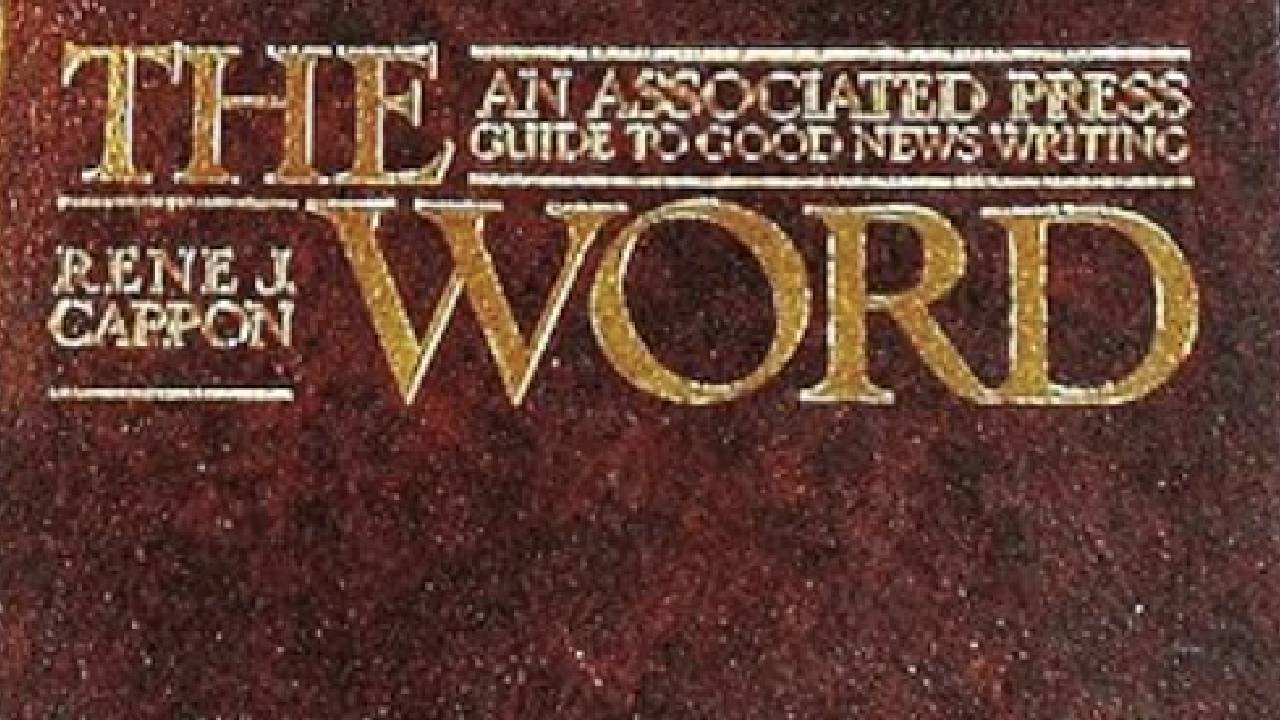There’s something magical about putting pen to paper. That moment when you are confronted by a blank page with only your imagination to fill it. Growing up in the country, I had plenty of time to write poetry, and research the history of the home where I lived.
It’s what led me to a career in journalism over 40 years ago.
Honing my skill as a journalist came from my time as a copygirl at News Limited, followed by a graduate cadetship with Australian Associated Press. I remember being presented with the bible of journalism, a book by René J. Cappon simply called ‘The Word: An Associated Press Guide to Good News Writing‘.

There were times when many patient sub-editors would help me craft a better story, or a more seasoned journalist would tell me I’d buried the lead in the last paragraph. Many of those journalists and editors who gave me a break in my career, I’ve since thanked for both their patience and belief in me.
Journalism has been my passport to see the world and meet extraordinary people and shown me what life is like living in the UK, US, New Zealand and now home again in Australia. It’s opened doors and given me access to fascinating people the world wide, from the Sahara Desert to the Oscars as I describe here in my recent podcast with Nicola and Di on their Over The Back Fence podcast, here.
Now, having moved from newspaper reporting, to TV producing to magazine editing, to technology journalism, it’s hard to imagine how the next forty years will shape journalism. What will be the impact of AI content on the world?
Interestingly, research conducted by Charles Darwin University (CDU) shows AI-written news lacks the creative flair of human journalism. CDU researchers analysed 150 articles each from both human journalists and AI chatbot Gemini on various topics like politics and sports.
Findings indicated that human writers use more varied sentence and paragraph lengths, as well as more verbs, making their content more engaging. In contrast, Gemini’s writing was seen as less stylistically diverse.
That, I can believe!
Lead investigator Van Hieu Tran says AI content is readable but “more boring” compared to human work. Dr Yakub Sebastian said that the research addresses the importance of maintaining human creativity and addressing potential biases in AI-generated content.
One suggestion from the study, co-authored by Dr Sebastian, is that more tools to identify AI-generated text are made available. At least then, there is a level of authenticity for the reader that is likely missing now.
And, therein lies the rub. Do you feel less comfortable reading something that has been manufactured in seconds by a computer or thoughtfully composed by a real journalist, like me? Do journalists need to be conscious of their writing styles to show that their independently written story was not AI-driven?
I would say, ‘yes’ and ‘yes’.
CDU Lecturer in Information Technology Dr Yakub Sebastian points to the importance of showing that human ingenuity and the sense of a personality in a story can still thrive, and remain more appealing to readers.
“There is also a deeper question as to whether it matters whether we could distinguish AI versus human writers beyond the issue of attribution/originality especially if all facts in the news are equally accurate,” he says.
“We think it matters because news often shapes opinions and narratives, not just delivering facts. AI biases, for instance, are certainly one thing that we need to be concerned about.”
Dr Sebastian said AI is rapidly evolving to resemble human copy.
“AI models advance at a breakneck speed, and we see them increasingly capable of doing what humans can do,” he adds.
“As such, we can expect that distinguishing between human-generated and AI-generated text will become increasingly difficult for human readers. This is already happening. Just recently, an Italian newspaper officially published the world’s first AI-generated newspapers.
“We can think of a Turnitin-equivalent Web browser plug-in that could flag with a certain probability that the news being displayed on the Web browser is AI-generated based on the machine learning model we developed in this paper.”
At the end of the day, I believe readers will want to have some level of transparency about what they are consuming, and it’s from that understanding that some of my colleagues are starting to provide a stamp that says 100% Human on their copy. So in the spirit of authenticity, this story is 98% human. The headline is the result of an AI prompt to provide three SEO friendly headlines, and the headline chosen is a combination of that.

My final reflection on the future of Artificial storytelling is one of sadness for the budding young journalists at the start of their career. There were so many stories I was sent on that took weeks, even months to produce. I was even sent with photographer David Hill to the then war-torn deserts of Algeria, Western Sahara and Mauritania to write one single newspaper story on a woman called Olwen Haslam. Olwen was searching for her husband’s grave forty years after his plane crashed in the dunes. David and I travelled with her to find his grave so she could have some closure, and years later David took her ashes back to rest alongside him in a remote oasis in Mauritania.
Those days where media companies invested in real stories and journalists and photographers had the opportunity to venture into the most remote parts of the world in search of stories is most likely a thing of the past. But perhaps I’m wrong. I certainly hope so.

MORE INFORMATION ON ARTIFICIAL STORYTELLERS
Distinguishing Human Journalists from Artificial Storytellers Through Stylistic Fingerprints was published in Emerging Trends in Machine Learning and Artificial Intelligence, a special issue of the international journal Computers.





